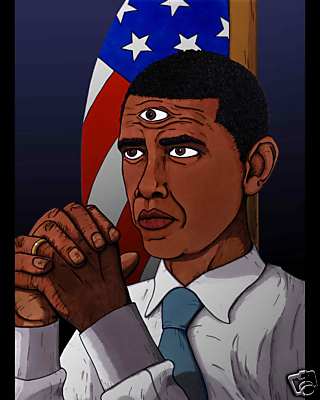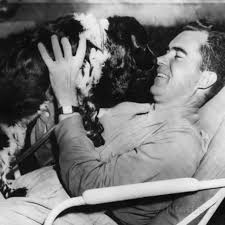Dissecting David Brooks; Dissecting Thomas Friedman.
Saturday, May 22nd, 2004David Brooks …: Nonetheless, it’s not too early to begin thinking about what was clearly an intellectual failure. There was, above all, a failure by America to understand the consequences of its power. There was a failure to anticipate the response its power would have on the people America sought to liberate. They resent the US for its power and at the same time expect the US to be capable of everything.
There was a failure by America to understand the effect its power would have on other people around the world. America was so sure it was using its might for noble purposes, it assumed that, sooner or later, everybody else would see that as well. Far from being blinded by greed, America was blinded by idealism.
There was what?
Now, looking ahead, America faces another irony. To earn their own freedom, the Iraqis need a victory. And since it is too late for the Iraqis to have a victory over Saddam, it is imperative that they have a victory over the US. If the future textbooks of a free Iraq get written, the toppling of Saddam will be vaguely mentioned in one clause in one sentence. But the heroic Iraqi resistance against the American occupation will be lavishly described, page after page.
For America to succeed in Iraq, America has to lose.
That means the good Iraqis, the ones who support democracy, have to have a forum in which they can defy the US. If the insurgents are the only anti-Americans, then there will always be a soft spot for them in the hearts of Iraqi patriots.
From here, we prop Ahmad Chalabi up by propping him down. If I hadn’t witnessed similar absurdity by the powers that currently be, I would brush that aside as an absurdity… but in this post-modernist game we’re witness to… it’s the American audience that they’re aiming at anyway, so… maybe the “showing” of the Iraqis “embracing” “Chalabi” will feed into “our” view that they’ve fought and won sovereignty.
… On the other hand…
Okay. What does the prominent Liberal Hawk have to say these days?
It is time to ask this question: Do we have any chance of succeeding at regime change in Iraq without regime change here at home?
“Hey, Friedman, why are you bringing politics into this all of a sudden? You’re the guy who always said that producing a decent outcome in Iraq was of such overriding importance to the country that it had to be kept above politics.”
Yes, that’s true. I still believe that. My mistake was thinking that the Bush team believed it, too. I thought the administration would have to do
Question: What kind of narrative device did Thomas Friedman just employ there? What professional columnist interjects their editorials with imaginary conversations? To what purpose?
I’ll take it as a sign of exasperation withinin his own thought-process.
I admit, I’m a little slow. …
Following that statement, Friedman describes the war architects as a parade of ideolouges…
Skip over to his latest editorial… keep the template handy… Actually, let’s excerpt the parody and place it side by side with the real editorial:
Last week’s events in [country in the news] were truly historic, although we may not know for years or even decades what their final meaning is. What’s important, however, is that we focus on what these events mean [on the ground/in the street/to the citizens themselves]. The [media/current administration] seems too caught up in [worrying about/dissecting/spinning] the macro-level situation to pay attention to the important effects on daily life. Just call it missing the [desert for the sand/fields for the wheat/battle for the bullets].
India just had a stunning election, with incumbents across the country thrown out, largely by rural voters. Clearly rural Indians, who make up the country’s majority, were telling the cities and the government that they were not happy with the direction of events. I think I can explain what happened, but first I have to tell you about this wild typing race I recently had with an 8-year-old Indian girl at a village school.
When I was in [country in question] last [week/month/August], I was amazed by the [people’s basic desire for a stable life/level of Westernization for such a closed society/variety of the local cuisine], and that tells me two things. It tells me that the citizens of [country in question] have no shortage of [courage/potential entrepreneurs/root vegetables], and that is a good beginning to grow from. Second, it tells me that people in [country in question] are just like people anywhere else on this great globe of ours.
“Dust” is an appropriate word, because a drought in this area of southern India has left dust everywhere. “These kids — their parents are ragpickers, coolies and quarry laborers,” said the school’s principal, Lalita Law. “They come from homes below the poverty line, and from the lowest caste of untouchables, who are supposed be fulfilling their destiny and left where they are — according to the unwritten laws of Indian society. We get these children at age 4. They don’t know what it is to have a drink of clean water [or use a toilet]. They bathe in filthy gutter water — if they are lucky to have a gutter near where they live. They don’t even have proper scraps of clothing. We have to start by socializing them. When we first get them, they run out and urinate and defecate wherever they want. [At first] we don’t make them sleep on beds because it is a culture shock. Our goal is to give them a world-class education so they can aspire to careers and professions that would have been totally beyond their reach, and have been so for generations.”
I don’t know what [country in question] will be like a few years from now, but I do know that it will [probably look very different from the country we see now/remain true to its cultural heritage], even if it [remains true to its basic cultural heritage/looks very different from the country we see now]. I know this because, through all the disorder, the people still haven’t lost sight of their dreams.
India needs a political reform revolution to go with its economic one. “With prosperity coming to a few, the great majority are simply spectators to this drama,” said Mr. George. “The country is governed poorly, with corruption and heavy bureaucracy at all levels. I am a great advocate of technology and globalization, but we must find a way to channel their benefits to the rural poor. What is happening today will not succeed because we are relying on a corrupt and socially unfair system.”
Speaking with a local farmer on the last day of my recent visit, I asked him if there was any message that he wanted me to carry back home with me. He pondered for a second, and then smiled and said, “[Short phrase in indigenous language],” which is a local saying that means roughly, “[Every branch of the tree casts its own shadow/That tea is sweetest whose herbs have dried longest/A child knows his parents before the parents know their child].”
I’ve never been able to read a Thomas Friedman article the same way after seeing that McSweeney’s parody… I won’t comment on whether he’s right or wrong about various issues, just say: he’s… consistent.



